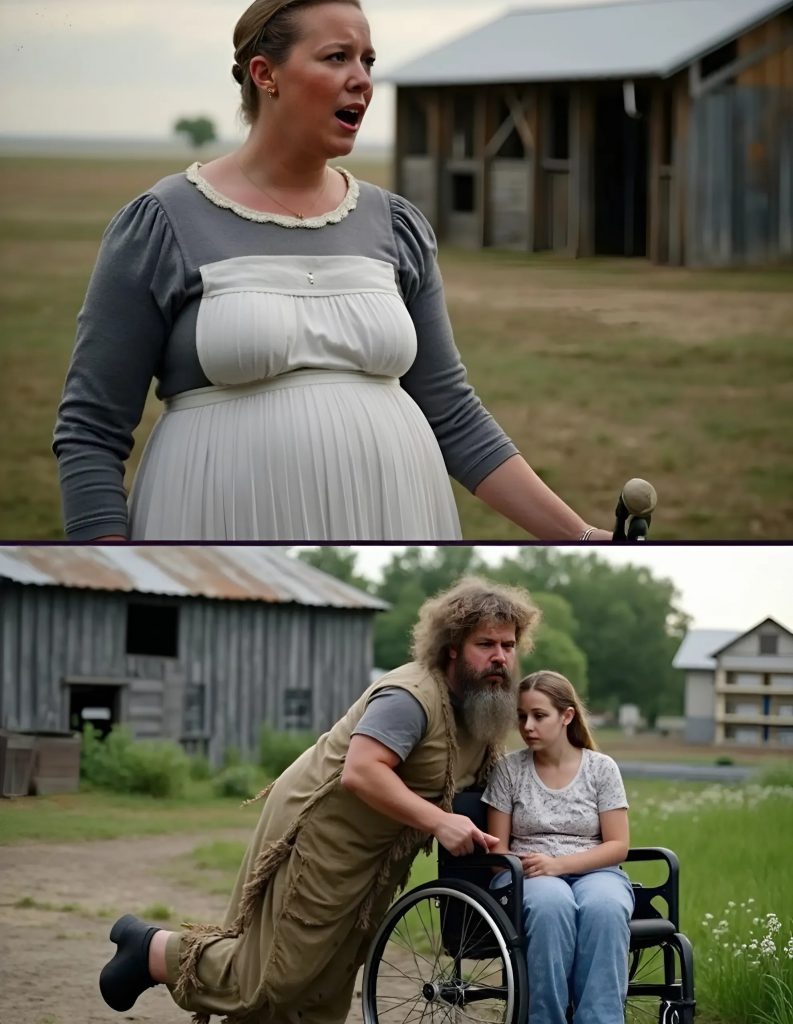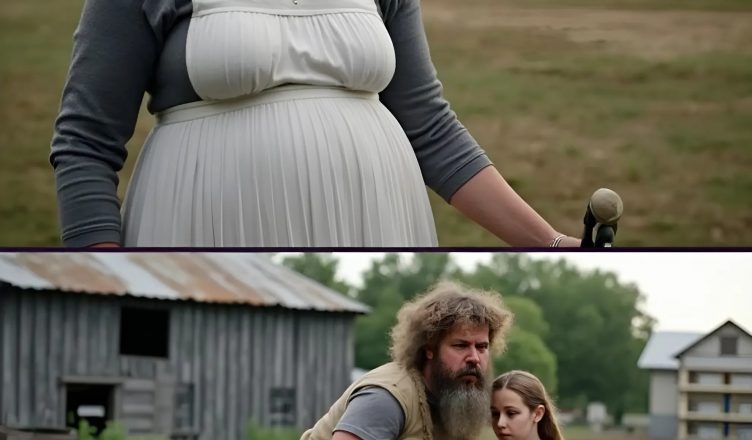Marina had always been strong. Life hadn’t given her many choices. When her husband left her with their paralyzed daughter, Masha, she didn’t cry. When she had to return to the village with nothing, she didn’t complain. When neighbors whispered behind her back, she didn’t bend. Anger simmered beneath her skin, but she drowned it in labor, in worry, in love.
She rose every morning before dawn, milked cows, cleaned stalls, carried pails, worked fields. Every coin went to Masha’s care. She had no time for pity—hers or anyone else’s. Her strength was silent and daily. But even the strongest can snap.
That moment came with a knock.
The Whisper That Lit the Flame
It was Aunt Natasha who came running to her farm, breathless, alarmed.
— Marina! Your Masha… she’s at the bathhouse. With him! That drifter from the riverbank!
Marina felt something inside her rupture. She dropped her pail. Her vision blurred. Who? What? Why? Masha couldn’t walk. How could she end up there, and with him of all people?
There had been talk, of course—about the man. Unshaven. Quiet. Lurking near the river. Children avoided him. Grown men kept their distance. Marina had seen him, too. Once or twice. But never imagined…
She ran. Faster than she thought her legs could carry her. Her heart thudded against her ribs, loud as the footsteps on the dirt path.
What She Expected… and What She Saw
She flung open the old bathhouse door.
Steam rushed out.
And there—inside, lit by the soft orange glow of a single lantern—sat Masha. Calm. Smiling. Her cheeks flushed with warmth. Her hair tied neatly in a braid.
And beside her, kneeling gently on the wooden floor, was him.
The man they called a vagabond. Pavel.
He wasn’t touching her inappropriately. He wasn’t frightening her. Quite the opposite. He was gently dipping a cloth into warm water, wringing it out, and softly cleaning her feet. Masha was speaking to him, laughing quietly.
The man looked up. Met Marina’s eyes.
He froze.
So did she.
The Truth Behind the Stranger
His name was Pavel.
Once, he had been a history teacher. He had a wife, a son, a house in the city. But then came a car accident that took everything. Wife. Son. Joy. Purpose.
He wandered. Landed here. Never begged, never stole. Just lived quietly on what he could. And one day, passing the market, he saw Masha sitting outside in her wheelchair. He nodded. She smiled. He came back the next day. And the next. They spoke. He told her stories of ancient Rome, of Napoleon, of lost cities and heroes.

No one had listened to him in years. And she—she hadn’t laughed in years.
A Kindness Misunderstood
Masha had complained of pain. Her muscles stiffened often. Pavel offered to help, to carry her to the old bathhouse, where warm water might ease her aches.
She agreed.
He lifted her carefully, respectfully. He carried her there, warmed the water himself. His every move was slow, gentle. He never meant harm.
But they didn’t think to tell Marina. And so she had come, ready to fight. Ready to protect.
But what she saw disarmed every weapon in her heart.
When Judgment Turns to Grace
Pavel stood up, slowly. Expecting shouts. Accusations. A slap.
But Marina said nothing.
She looked at Masha. Her daughter’s face was peaceful—serene in a way she hadn’t seen since childhood. Then she looked at Pavel. The lines in his face. The sorrow in his eyes. And the unmistakable dignity in his actions.
She stepped inside. Closed the door behind her. Sat down on the bench opposite them.
— Thank you, she said. Not because she had to. But because she meant it.
What Followed
After that day, the village began to see Pavel differently.
They didn’t speak to him with suspicion anymore. He was invited to help with repairs, to tell stories at the school. People realized: he wasn’t a threat. He was someone who had known love, lost everything, and still carried enough warmth to give to a girl no one else bothered to notice.
Marina, for the first time in years, didn’t feel alone.
Pavel didn’t move in. He didn’t ask for anything. But he came by, often. Sometimes with wildflowers. Sometimes with old books. Sometimes just to say hello.
And Masha, thanks to him, began to believe in people again.
